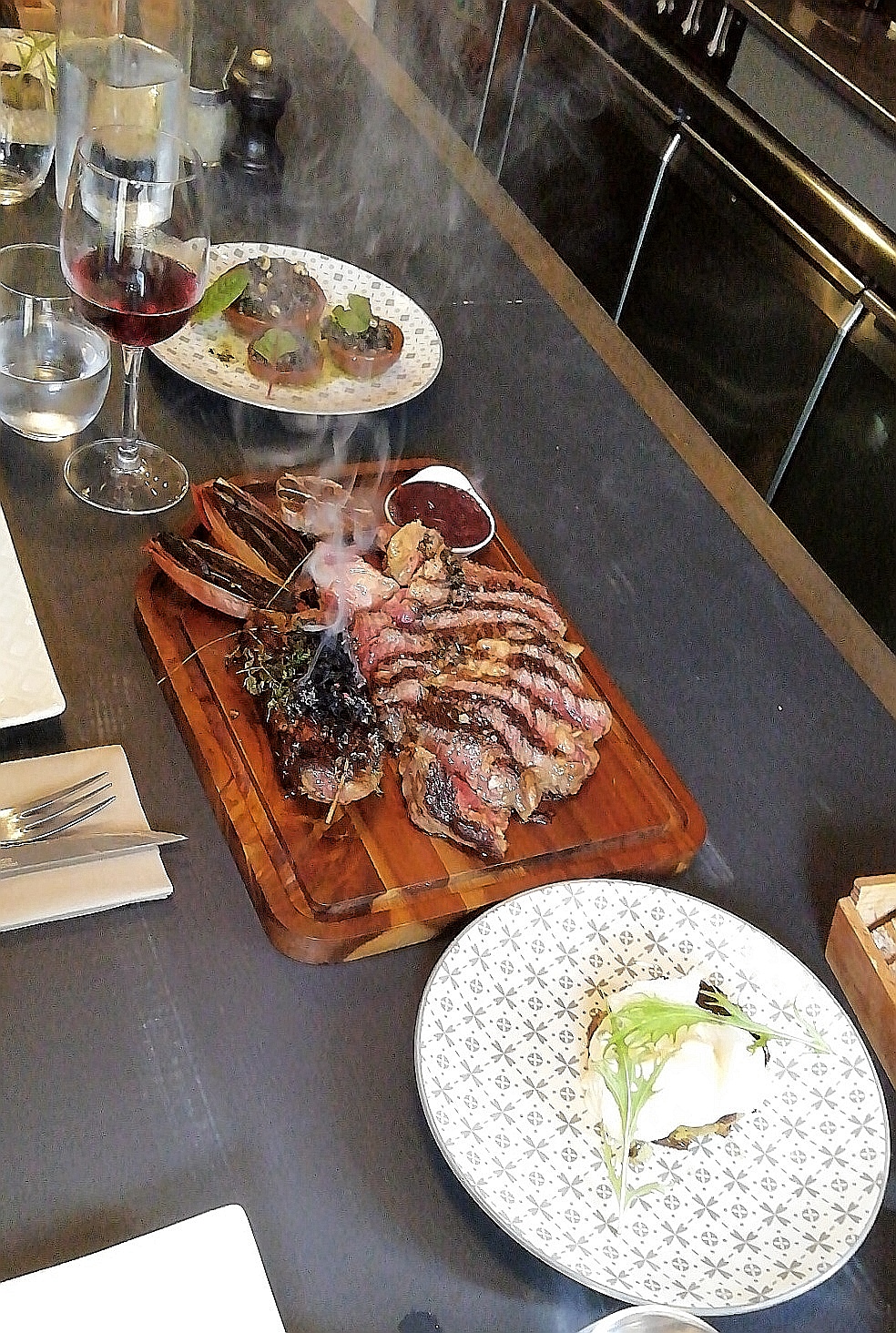Cultural Differences between Finland and France
In this blog post, we are talking about some major differences between French and Finnish cultures. This list is only an introduction to the topic, however, we chose to list the most important and relevant differences me and Sini experienced during our stay in France. What must be said before going further, is that these are our own, subjective thoughts, and despite some of them not so positive differences, we still love France! So please don’t forget humour while reading this 😉
 Politeness
Politeness
When it comes to French culture, one of the first things you might notice are people’s manners. In France, it is an unwritten rule, that you must say hello if someone passes by, even to a stranger. Sounds obvious, however, for Finns this might be hard to remember.
Also, what is a major difference between Finnish and French culture regarding the spoken language, is that in France, people address strangers formally with”vovouiement” which means using ”vous” instead of ”tu” (the plural version of you). It is considered as a slight insult in case a stranger would be addressed informally, using the singular form of ”you”. In France, it is also normal that people help others, and for example, people tend to open doors and are willing to help in case someone falls etc. whereas in Finland people mind their own business and prefer to stay in their own bubble without talking to others. This leads us to the difference in personal space. This famous personal space differs a lot between these two countries; for example in public places and transports in France, the personal space is an unknown concept. One reason for this is of course that the public transports are often very crowded, and there is no place for a thing called personal space, however, strangers coming so close physically might come as a shock for a Finn at first. It is not only in crowded places that this can be seen but already in the way French people greet one another. The ”bise” is unexceptionally the way French people say hello to someone. ”La bise” means that people give two cheek kisses for the person they meet. This can be a hard thing for a shy Finn to cope with at first because Finns’ closest way to greet is a hug. However, the personal space and the physical closeness in France was a thing at least me and Sini got used to, and after spending 9 months in France, this did not bother us anymore.
Eating & Drinking culture

Another big difference between France and Finland, which is visible in everyday life, is the eating and drinking cultures. First of all, the eating schedules differ a lot from each other; in France, there are commonly used eating hours, which French people follow without exceptions. For example, other plans for the day are usually scheduled around the fixed eating hours. Also, the clock defines whether a French person is hungry or not. Whereas in Finland, people eat whenever they feel like it and whenever they get hungry. Generally, France has a very rich food culture for which they are proud of. Eating, whether it was a lunch at school, at work or dinner downtown, is always a social event. French people take their time and don’t rush when eating, whereas in most Finnish workplaces or at school, the lunch break lasts from half an hour to an hour maximum.
Not only the French way of eating differs from Finnish culture, but drinking is also its own story. Needless to say, that wine is much consumed, especially during eating. It is normal, that during lunch people take one glass of wine while eating and getting back to work. A proper dinner is nothing without a glass or a bottle of wine, French people think. A big difference between Finland and France is in the number of alcohol people spend. In Finland, it is not so common to only drink one or two glasses during a normal weekday and it is not that associated with food. Drinking in Finland is more like ”all or nothing” kind of culture whereas in France it is much more sophisticated. However, this is a generalisation, but the difference still exists.
 Small talk
Small talk
One difference between Finland and France is the small talk culture. In Finland, people are generally very honest and straight and do not speak if there is nothing to say. This is not the case in France. Actually, it is almost the opposite. French people love to talk, especially argue about things for hours. Also, French people do not like silence. During conversations, a silent moment can be very uncomfortable for a French, whereas for a Finn it is totally normal, it is a moment to think or reflect what the other people have said. Moreover, one thing what I like about French culture is that they praise a lot more than in Finland. People can say beautiful things about others in daily life, and that doesn’t need to mean anything more than just friendly praise. This can be difficult for a Finn to understand and accept at first because Finnish people do not easily say positive things for others, and if they do, it almost always is interpreted wrongly.
One thing to remember when talking with French people is to never get into a serious question or conversation without having some small talk before. Almost always it is required to ask ”how are you”, talk about some not that serious topics and then, slowly getting to the actual topic. This can be a hard thing to remember for a straightforward Finn, that don’t want to talk just for talking and never getting to the point. This requires a bit of patience in order to get used to it. However, it is important to remember not to get too fast to a serious topic, as this might be seen also as a slight insult in France.
Bureaucracy
French bureaucracy cannot be excluded from this list, because it is probably the most emotional difference from the perspective of a Finn. In Finland, we have used to the fact that things work as they should, at least most of the times. As technology has developed, things have got even better and easier. Whether it is something to do with banks, insurances, social security or getting a passport, everything is easy, logic and fast. Of course, nothing is perfect, but in Finland – like in other Northen countries and Germany, for instance – things are working and if not, we will make them work. I wish I could say the same thing about France, but unfortunately, that is not the case. In France, whatever is the thing people need to get, it has been made sure that it will not be easy. Where in Finland you sign one paper, in France it requires at least 5 papers (sent via regular post, not email), few phone calls or a visit to an actual place in order to get something done. Ok, this is a bit of exaggeration, but unfortunately close to the truth in many cases. It requires real patience and a change of attitude in order to stay positive in these kinds of situations in France.
This is all related to another topic, which is the old fashioned way for French people to do things. It is no one’s personal fault, however, the French system still works in a very old fashioned way; for example checks are in many cases more common way to pay bills than bank transfers, many formal papers must be sent via regular post rather than via email and every paper needs to be printed out, and the list goes on. On the other hand, what makes French culture a bit controversial, is that despite having all these rules and regulations when it comes to bureaucracy, in some cases, the rules are missing. For example when it comes to punctuality. It is an unwritten rule, that in France, people do not need to be anywhere on time. If someone says, let’s meet at 9 pm, it almost always means 9.15, or even later. This is a habit that can be very annoying for many Finns, that appreciate the punctuality and a kind of respect for others.
Way of Life
Last but not least – and in order for not to sound too harsh about French culture – we would like to end this post with a great element of French culture, that also differs a lot from the Finnish one; the way of life in France. As in many South-European countries, also in France, the way of living is rather relaxed, positive and happy. Of course, this depends a lot of persons, the regions and the size of the cities, but let’s say that in general, French people do know how to enjoy life every day. People go out in the city, are very social and like to spend time with families and friends, I would say a lot more than in cold Finland, where people after work tend to go home or for a workout. This difference can at least partly be explained by the difference in the level of individualism in Finland compared to France. In Finland, people tend to focus on their own lives so much that sometimes we might forget to truly connect with others. I think this social life is something that should be more present in the Finnish culture, and something we could definitely learn from this unique French culture.

Why take things and life too seriously, if you could just relax, enjoy life and be happy with others, every single day?
Mari & Sini



